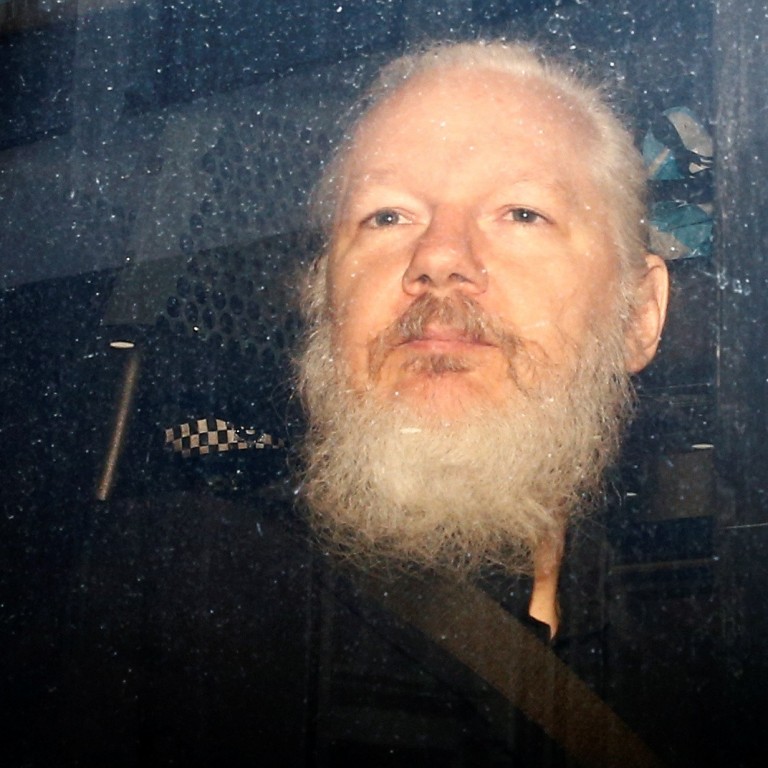
WikiLeaks founder can rely on rule of law to get fair trial
- Julian Assange faces extradition from Britain to the United States on the charge of conspiracy to access a computer, and his lawyers fear President Donald Trump will politicise the case
Julian Assange, the founder of WikiLeaks, is as divisive a figure as there can be. His arrest at the Ecuadorean embassy in London was equally welcomed and condemned, ending an almost seven-year saga. He had fled there to avoid extradition to Sweden, where he had been accused of sexual assault and rape, and is now serving the jail sentence of up to 12 months he was slapped with for skipping bail. But while breaking laws and evading justice can never be condoned, his devotion to making governments honest and transparent by revealing their secrets through publishing leaked documents on his website or sharing them with mainstream media won him the highest praise.
Assange contended the Swedish charges were a smokescreen concocted by the United States so that it could extradite him to face trial for endangering national security. Now that he has finally left the embassy, Washington’s intentions are known; it has charged him with the considerably lesser crime of conspiracy to access a computer. That relates to a hoard of classified material handed to WikiLeaks by whistle-blower Chelsea Manning, then an army private, and later, documents stolen from computers used by 2016 presidential contender Hillary Clinton’s campaign team.
Therein lies the problem: US President Donald Trump is a vehement critic of WikiLeaks because it has revealed documents about his administration. His predecessor, Barack Obama, although also angered by leaks and the embarrassment caused, was reluctant to formulate a case because the organisation was essentially carrying out the work of a free press through what amounted to investigative journalism. Manning instead bore the brunt, serving seven years of a 35-year sentence for the leak, and has returned to jail for refusing to testify in a new WikiLeaks case. Far more serious charges could have been filed against Assange, and Trump, who has shown he cares little for the work of a free press, could go where Obama dared not to.
Assange’s critics contend he is not doing the work of a journalist or that WikiLeaks is a news service and they should therefore not be viewed in terms of upholding American constitutional first amendment rights of free speech and expression. But there can be no dispute that WikiLeaks has repeatedly uncovered corruption and wrongdoing, US military actions in Afghanistan and Iraq being the most prominent. When extradition proceedings begin, Assange’s lawyers may well claim US courts cannot be trusted as Trump is politicising the case – allegations already heard in Canada with efforts to have Huawei’s chief financial officer, Sabrina Meng Wanzhou, face charges in the US. But British courts, like Canadian and American ones, are renowned for fairness and upholding the rule of law. There is no reason to suspect Assange will get anything but a fair trial.

